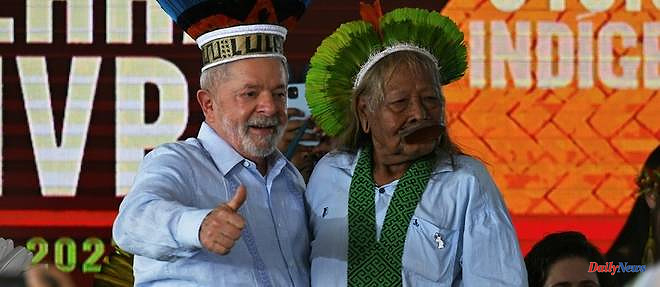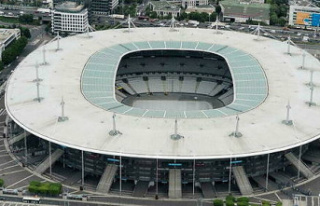Brazilian President Lula on Friday signed decrees legalizing six new indigenous reserves, the first since 2018, which represent a victory for the natives.
These reserves guarantee the natives the exclusive use of natural resources, while preserving their traditional way of life. They are considered by scientists as a bulwark against deforestation, a major challenge in the fight against global warming.
No new indigenous land had been legalized under the mandate of Jair Bolsonaro (2019-2022), far-right predecessor of Lula, who had promised before coming to power to "not give up another centimeter" to the natives. .
The last approval dates back five years, almost to the day, when the Guato people were granted the inalienable right to occupy 20,000 hectares of their ancestral lands in the state of Mato Grosso (center-west), on April 26. 2018, under the presidency of Michel Temer (center right).
"It's a process that takes time, but we're going to make sure that as many indigenous reserves as possible are legalized. If we're going to achieve zero deforestation by 2030, we need legalized indigenous reserves," said Luiz Inacio Lula da Silva on Friday.
Under the presidency of Jair Bolsonaro, average annual deforestation had increased by 75% compared to the previous decade.
Lula signed the decrees alongside prominent indigenous figures, such as the iconic cacique Raoni Metuktire, who presented him with a traditional headdress of blue and red feathers.
The ceremony took place on the last day of the "Terra Livre" (Free Land) Camp, an annual gathering of thousands of indigenous people from all over the country this week in Brasilia.
"In four years, we will do more (for the indigenous peoples) than in the eight years we had already governed the country (2003-2010)," assured the left-wing president, who began his third term in January.
Two of the six new legalized reserves are located in the Amazon, including that which is by far the largest called Unieuxi, attributed to 249 indigenous peoples of the Maku and Tukano peoples, over more than 550,000 hectares in the state of Amazonas (north).
Two reserves are located in the northeast of the country, one in the south and a final one in the central region.
According to the last census of 2010, some 800,000 indigenous people live in Brazil, most of them in reservations that occupy 13.75% of the territory.
"Those who say that these lands reserved for you are too vast must remember that before the arrival of the Portuguese colonizers, you occupied 100% of the territory", launched Lula, under the cheers of the public.
New approvals should take place soon: last month, the Minister of Indigenous Affairs, Sonia Guajajara, announced that 14 indigenous lands (including the six approved on Friday) were ready to be legalized, covering nearly 900,000 hectares.
"We are going to write a new story, for the good of all humanity, of our planet," the minister said on Friday, just before the decrees were signed.
"We indigenous peoples represent only 5% of the world's population, but we preserve more than 80% of the world's biodiversity," concluded the 49-year-old former activist, whose ministry was created by Lula to give more room for indigenous issues in his government.
04/28/2023 18:37:48 - Brasilia (AFP) - © 2023 AFP












